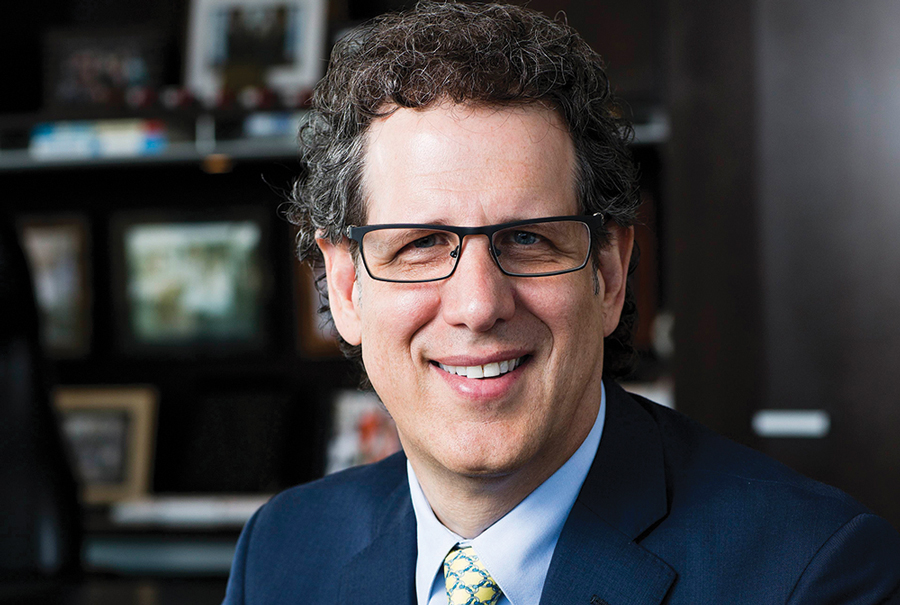What do these blockbuster films have in common?: Lincoln, The Help, Contagion, Waiting for Superman, Charlie Wilson’s War, The Kite Runner, North Country, An Inconvenient Truth, Good Night and Good Luck, Syriana. Participant Media of course. And they’re expanding our thinking while entertaining us.
The challenge founder Jeff Skoll presented to CEO Jim Berk (pictured above) was impossible according to many industry pundits: Build a commercially successful media company by telling stories that both entertain and raise important issues that inspire people to take action. In only 10 years, Participant’s 50 films, 36 Academy Award nominations, and seven Oscars can no longer be treated as an anomaly.
Jeff believes that a good story, told well, can truly make a difference in how one sees the world. Whether it’s a feature film, documentary, television show or other form of media, the work exists to tell compelling, entertaining stories that also create awareness of the real issues that shape our lives. To date, Participant has developed active, working relationships with 600 nonprofits that collectively have the potential of reaching more than 75 million people. We asked Berk about the role of entertainment in changing people’s perceptions of the world.
What is the key ingredient needed to inspire a movie audience to take action?
You have to introduce something in the spirit of the film that makes an audience realize something is really important. We focus on that because we know that politicians and policymakers react to that, and if people demand a product or idea, then there’ll always be companies that come to the rescue and start delivering them. We use a term called “key influencers,” who are people found in small numbers, but who have the ability to impact and influence a huge audience. It’s the same reason a brand has an athlete to endorse something.
We’ve found that with some of our films, even if the box office numbers aren’t anywhere near the latest Spider-Man movie, our impact is disproportionate because the stars are people who have the ability to change an issue for the better. In many ways, there’s a parallel between what we do and what Real Leaders is doing, a magazine that put ideas in front of people, that provides awareness initially, and then ignites an interest that ultimately drives action for the better. Most people want to live in a world of peace and sustainability, something at the heart of what Participant founder Jeff Skoll set out to achieve.
You fundamentally have to be an optimist and believe there are solutions. Films are the perfect vehicles for conveying solutions; that’s the power of storytelling. It allows us to create a narrative that binds you emotionally to something. Despite our success there hasn’t been a year where Jeff hasn’t sat us down and said, “Yes that’s all great, wonderful stuff,” yet sends me an email over the weekend saying, “I’ve been thinking about this and think there are three other areas we should also be thinking about, come back to me with a plan.”
This year we have 11 films that are going to premier in a festival or be released, between our feature length documentaries and feature narrative films. We’ve also launched Participant PanAmerican, and have our first Latin American films coming out next year. It seems the more we do, the more aggressive we get about wanting to do more; it exhausts us in the most wonderful way.
The influencer approach then targets in a very specific way. Our small, award-winning film The Middle of Nowhere, looked at a family that was pulled apart by incarceration. We connected recidivism to a lack of access by prisoners to their family members. We also discovered telecommunications companies didn’t regulate collect calls from prisons, and that inmates were paying five, 10 or 20 times the going rates.
If a standard call rate was three cents a minute, they were being charged US$3.50 a minute. Many calls would drop because of this. We targeted that issue and it ended up making it’s way through the Federal Communications Commission (FCC) with a coalition of NGOs we had pulled together. Consumers will save over a billion dollars a year as a result of this.
How do you respond to people who try and put you into a political party box?
That depends on the context and the content. One minute we’re called a liberal company, the next minute we’re very conservative. According to people who saw Waiting for “Superman,” we’re a very conservative company. People saw An Inconvenient Truth and thought we’re a more liberal company. I view Participant as a progressive company, interested in positive social change and I simply don’t care whether you wear red, green or blue, we just want you to be aware of the colors.
How do you take advantage of the key influencers that you have access to? How do you get the films that you most want to get in front of key influencers in a way that fits the organization?
For us the double bottom line, the social impact, is as important as the financial part in terms of driving the financial aspect. It keeps the “what,” “how” and “why” of what we do at the forefront. Look at how Corporate Social Responsibility has moved into the marketing department – it’s no longer something we do for long-term brand efficiency, it’s now how we retain our customer base in a world where people have no hesitation in ditching a brand, unless that brand stands for something, other than giving you 10 cents for every noodle you buy.
It’s about being authentic. For Millennials, authenticity is more important than price. They want authenticity and transparency and they don’t care if you’re trying to sell them something, they just want to be told when you’re trying to sell something to them. They want a purpose beyond the sale. It’s trying to do something that has authentic impact.
With all your focus on social change, is Participant doing well financially?
Yes, we’re pleased with where we are in the financial growth of Participant these past 10 years. Jeff is focusing the rest of his life on making bold bets on good people doing good things. He’s someone who’s going to deploy all the capital of his lifetime into making the world a better place. We use financial success as part of our measurement, because if we’re financially successful we know people are consuming our content, and this enables us to accelerate our impact.
In the last two years, we’ve been a part of films that have grossed over US$750 million in U.S. domestic box office receipts. Ten years later, people have now realized this is not a hobby or a one-off event. Jeff’s not making films for vanity or to be liked. There’s a reason we chose a business model for Participant over a nonprofit.
Look at Disney, where the founder has instilled values that have lived on well beyond him. I would rather be like Disney than a traditional foundation, where the business evolves into a global brand. There is a place for both. Look at the work of the Skoll Foundation; the social entrepreneurs they support are creating meaningful, lasting impact.
Is there any chance that others will see your approach as highly profitable and want to follow what you’re doing?
It’s already happening. The reason we created TAG, our cause marketing agency, is because blue-chip companies were coming to us wanting to know how we did things, and what our secret sauce was, that they wanted to apply to their business model. We want to apply this idea of social engagement as a way of building relationships with the consumer, so we’re creating programs and training people. It doesn’t matter what you sell or what business you’re in.








































